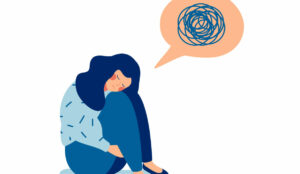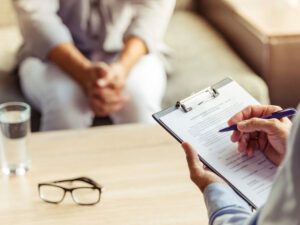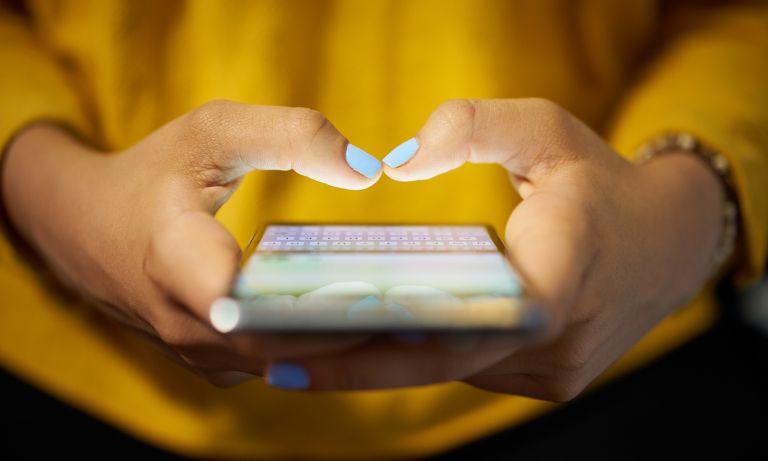Depression is a mental health disorder that affects millions of people around the world. While there are many different causes of depression, one potential factor is social media. Studies have shown that spending too much time on social media can contribute to feelings of loneliness and isolation, which can lead to depression. In this blog post, we will discuss how to protect yourself from the negative effects of social media and maintain your mental health!
Contents
What Is Depression?
 Depression is a mood disorder that causes a persistent feeling of sadness and loss of interest. It affects how you feel, think, and behave, and can lead to physical problems. You may have trouble doing normal day-to-day activities, and sometimes you may feel as if life isn’t worth living.
Depression is a mood disorder that causes a persistent feeling of sadness and loss of interest. It affects how you feel, think, and behave, and can lead to physical problems. You may have trouble doing normal day-to-day activities, and sometimes you may feel as if life isn’t worth living.
This condition is more than just a case of the “blues.” Depression is a real medical condition that can be diagnosed and treated. It’s not something you can simply will away. But, with treatment, most people with depression feel much better.
If you are experiencing symptoms of depression, it’s important to seek help from your doctor or mental health professional. Depression is a treatable condition, and there are many effective treatments available.
How Social Media And Depression Are Connected?
There is a clear connection between social media and depression. Social media can be a trigger for depression, or it can be a symptom of it. It can also make existing mental health conditions worse. Let’s discuss the connection and how one can protect themselves.
There are a few key ways social media and depression are connected:
Social media can be a trigger for depression. If you see friends constantly posting about their amazing lives, it’s easy to feel like you’re not good enough. This can lead to feelings of jealousy, inadequacy, and loneliness. If you’re already struggling with depression, social media can make it worse.
Social media can be a symptom of depression. If you’re feeling depressed, you may turn to social media as a way to numb yourself or escape from your problems. This can lead to spending hours on social media, scrolling through feeds, and looking at other people’s lives. And very easily, it can become a vicious cycle.
Social media can make existing mental health conditions worse. If you have anxiety, social media can amplify your fears and worries. If you have OCD, social media can trigger intrusive thoughts and compulsions. And if you’re dealing with any type of eating disorder, social media can be extremely triggering and harmful.
So, in numerous ways, social media and depression are connected. But what can you do to protect yourself? We will discuss this further in this article, so keep reading.
Can Overuse Of Social Media Leads to Depression?
 There’s no denying that social media has become a huge part of our lives. We use it to keep in touch with friends and family, share news and experiences, and often turn to it when we’re feeling down or need a pick-me-up.
There’s no denying that social media has become a huge part of our lives. We use it to keep in touch with friends and family, share news and experiences, and often turn to it when we’re feeling down or need a pick-me-up.
But what happens when social media starts to have the opposite effect? When instead of making us feel good, it starts to make us feel bad? This is a question that’s been getting a lot of attention lately, as more and more research suggests that there may be a link between social media use and depression.
One study, for example, found that people who spent more than two hours per day on social media were twice as likely to experience symptoms of depression as those who spent less time on social media. Other studies have found similar results.
So what’s going on here? Can overuse of social media really cause people to become depressed? Somehow, the answer seems both obvious and not so simple.
On the one hand, it’s easy to see how social media could cause depression. As it can be a major source of negative feedback. We’re constantly exposed to other people’s opinions, and it’s all too easy to take them personally. On the other hand, social media isn’t the only factor that can lead to depression. There are many other factors, such as genetics, environment, and life experiences.
So it’s not entirely clear how big of a role social media plays. In the end, it’s probably best to err on the side of caution.
What Are The Consequences?
Now that we know social media can impact our mental health, then, what are the consequences of social and depression in our life? Let’s outline a few:
- Feelings of inadequacy: When we compare our lives to others, it’s easy to come up short. We forget that people only post the best parts of their lives on social media and that everyone has struggles.
- Isolation: Since we’re spending more time on our devices, we’re actually isolating ourselves from the people around us. We’re not talking to our friends and family as much, and we’re not getting out and interacting with people in person.
- Lack of sleep: Too much time on social media can lead to insomnia or poor sleep quality. And since lack of sleep can cause depression, this is a vicious cycle.
- Low confidence: Social media can be a breeding ground for negative comments and cyberbullying. This can lead to low self-esteem and confidence.
- Decreased productivity: When we’re spending too much time on social media, we’re not being productive. We’re not working on our goals or taking care of our responsibilities. This can lead to even more feelings of depression and inadequacy.
These are some common consequences of social media and depression. If you’re struggling with mental health, it’s important to be aware of how social media can impact you. And, take steps to protect yourself. With the right precautions, you can still enjoy social media without letting it negatively affect your mental health.
How To Control Your Social Media Use?
There are a few things you can do to control your social media use, and protect yourself from the negative effects of too much time online.
Set limits
 It is important to set limits on the amount of time you spend on social media. One way to do this is to set a daily limit and stick to it. For example, you could decide to spend no more than 30 minutes on social media each day. Or, you might set a limit of two hours per week.
It is important to set limits on the amount of time you spend on social media. One way to do this is to set a daily limit and stick to it. For example, you could decide to spend no more than 30 minutes on social media each day. Or, you might set a limit of two hours per week.
Another way to set limits is to be more selective about the platforms you use. If you find that you spend a lot of time on Facebook, but it doesn’t make you feel good, try spending less time there. Or, if Instagram is your favorite platform, make sure to follow accounts that make you feel good and limit the amount of time you spend scrolling through your feed.
Unfollow, mute, or block people who make you feel bad
If someone’s posts make you feel bad, it’s okay to unfollow, mute, or block them. Social media should be a positive space for you, so don’t feel bad about taking measures to protect yourself. For example, if you see a friend constantly posting about their perfect life, it might make you feel bad about your own life. In that case, you can unfollow them or mute notifications on social media altogether.
Take breaks
This is probably the most important thing you can do for your mental health when it comes to social media. It’s so easy to get caught up in the constant scroll, and the next thing you know, hours have passed. If you start to feel yourself getting sucked in, take a break. You can also try to switch off your phone once a week or avoid the phone while eating or spending time with family or friends.
Know your addiction
Most people are addicted to social media without even realizing it. If you find yourself constantly checking your phone or scrolling through your feed, it’s time to take a step back and assess your relationship with social media. There’s nothing wrong with using social media, but it’s important to know when it is becoming your addiction and causing you more harm than good.
Build self-awareness
 Self-awareness is about understanding your own emotions and triggers. It’s also about recognizing how social media affects you. Are you someone who scrolls through Facebook and feels bad after seeing all the happy posts? Do you start comparing your life to others’ highlight reels? If you can answer these questions that means at least you are aware of how social media makes you feel. And that’s a good start.
Self-awareness is about understanding your own emotions and triggers. It’s also about recognizing how social media affects you. Are you someone who scrolls through Facebook and feels bad after seeing all the happy posts? Do you start comparing your life to others’ highlight reels? If you can answer these questions that means at least you are aware of how social media makes you feel. And that’s a good start.
Focus on the positive side
This is very essential when using social media even for less important things like reading the news. It is very easy to get caught up in all the negative aspects of the world and forget about all the good. In fact, studies have shown that too much focus on the negative can lead to depression. So, make sure to take some time each day to focus on the positive things in your life and the world around you.
Do a digital detox
Sometimes, the best way to deal with social media and depression is to take a break from it. This doesn’t mean you have to delete all your accounts and never go online again. But, taking a break can give you some much-needed perspective. A digital detox is all about unplugging from technology and spending some time offline.
These are a few things that can help to control your social media use and protect yourself from depression. It is important to be aware of the dangers of social media and to take steps to protect yourself. If you are feeling overwhelmed or depressed, reach out to a trusted friend or family member. You can also talk to a mental health professional.
How Can You Treat Depression?
 Now that you know the signs to look out for, it’s important to understand how you can effectively treat depression. While there are a number of different methods available, here are some of the most common and effective treatments:
Now that you know the signs to look out for, it’s important to understand how you can effectively treat depression. While there are a number of different methods available, here are some of the most common and effective treatments:
- Psychotherapy: Also known as talk therapy, this treatment involves meeting with a therapist to discuss your thoughts, feelings, and experiences. Therapists can help you identify negative thought patterns and behaviors, and replace them with healthier ones.
- Medication: For some people, medication can be an effective treatment for depression. Antidepressants can help to improve mood and alleviate some of the symptoms of depression.
- Exercise: Exercise has been shown to be an effective treatment for depression. It can help to improve mood, increase energy levels, and reduce stress.
- Diet: Eating a healthy diet is important for overall health, but it can also be helpful in treating depression. Eating foods that are rich in omega-three fatty acids, such as salmon and avocados, can help to improve mood.
If you think you may be suffering from depression, it’s important to seek professional help. Talk to your doctor or a mental health professional to get started on the road to recovery.
Social media and depression are two topics that are often spoken about together. While social media can be a great way to connect with friends and family, it can also have a negative impact on mental health. So, understand when to stop and take a break from social media, and how to effectively treat depression.
Conclusion
In conclusion, social media and depression can be a dangerous mix. Both can trigger negative emotions and thoughts, which can lead to a downward spiral. It’s important to be aware of the risks and take steps to protect yourself. If you’re feeling depressed, or if social media is making you feel bad, talk to a trusted friend or family member, or see a mental health professional.
Early recognition and treatment of depression are important, so don’t hesitate to seek help if you’re feeling down. Though social media is considered a great way to connect with others, use it in a healthy way.
For more information and guidance please get in touch with our expert therapists at Therapy Mantra. They will be more than happy to assist you on your journey to recovery. Contact us today to learn more about our services. You can also book an online therapy session or download our free Android or iOS app.


